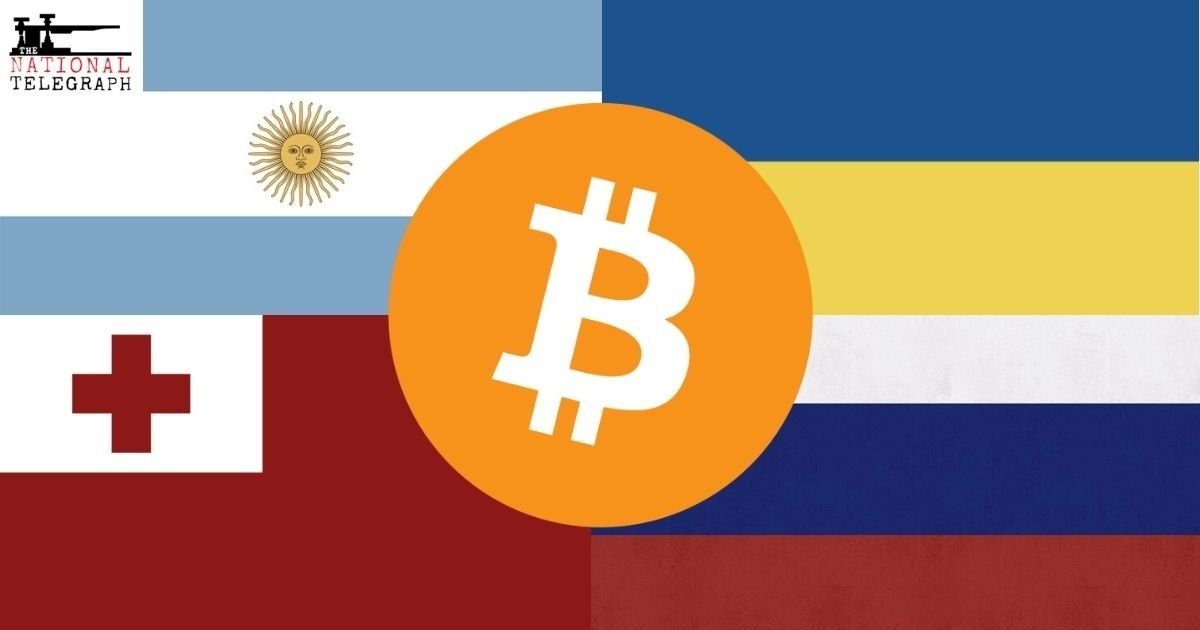Written By Neil McKenzie-Sutter, Posted on April 20, 2022

President Bukele of El Salvador sent shockwaves through the world with his announcement at last year’s Bitcoin conference that under his leadership, El Salvador would become the first country in the world to recognize Bitcoin as legal tender, which promises he fulfilled during the year since.
Although controversial and coming as a massive surprise at the time, there are quite a few totally logical reasons for El Salvador to adopt Bitcoin.
Unfortunately, no countries had the guts to follow in the footsteps of President Bukele and all-out declare Bitcoin legal tender, although there were a few autonomous zones within countries that did take this step.
There is no rule that says countries must declare their intent to make Bitcoin legal tender at the annual Bitcoin Conference. It could very easily happen sometime even this year that more countries follow the path El Salvado has set out, and here’s a list of strong candidates in contention.
1. Tonga
The government of the small Pacific island nation of Tonga has already declared its intention to recognize Bitcoin as legal tender sometime in 2022, the only question remaining, in this case, is whether the timeline for adopting the cryptocurrency is on track. Unfortunately earlier this year Tonga suffered a devastating volcanic eruption and tsunami which damaged much of the nation’s electrical grid, so we should expect Tonga’s timeline for rolling out their Bitcoin plans to be delayed.
In a positive and unexpected development, to aid Tonga’s recovery from the natural disaster, Elon Musk ordered SpaceX to deploy StarLink satellites so that Tongan islands that’d been cut off from the rest of the world were reconnected. Hopefully, even if Tonga’s plans have been thrown off, Musk’s humanitarian act here will have shortened the timeline to getting back on track.
2. Ukraine
Ukraine’s national currency has been totally devastated in value since the beginning of its brutal and ongoing war with Russia, and Bitcoin has played an important role in allowing the people affected there to buy essential goods.
In fact, in Ukraine 2022 wasn’t the beginning of their conflict with Russia they have been at odds with violent clashes since 2014 and Russia’s annexation of Crimea. Bitcoin has been used by the citizens there to combat the collapsing national currency since the trouble started continuing to this day.
Of course, 2022 took the conflict into overdrive, and at the same time, we saw an explosion of the use cases for Bitcoin and different cryptocurrencies in the war-torn country, including and up to the Ukrainian government itself almost following through on plans to airdrop NFTs to citizens. Although the airdrop plans by the government were canceled last minute, the fact the government came as close as it did underlines the massive expansion of cryptocurrency use cases that have gone on in wartime Ukraine.
Since the Russian invasion the Ukrainian banking sector has collapsed, and with Elon Musk again coming to the rescue and deploying Starlink over Ukraine, Internet access is still at least semi-reliable, and that’s all you need for established cryptocurrency payment channels to work: the Internet. There is so much going on in cryptocurrency in Ukraine it’s really not hard to see a situation where the embattled President Zelinskyy declares, at least Bitcoin if not other cryptocurrencies as well, legal tender. Essentially Bitcoin is already being used as such, so would anyone stop him?
3. Russia
While it escaped a lot of public attention, Russia recently made an interesting announcement regarding their views on Bitcoin.
While it was much discussed that under heavy sanctions by the Western world, Russia would begin accepting payments for oil & gas contracts in either the Russian rouble or gold, the Russian energy administration also somewhat quietly stated they would accept payment in the form of Bitcoin, which Russia sees as a neutral currency, given the fact it’s decentralized.
Opinions on Russia’s war in Ukraine aside, the game theory of Bitcoin still points to the Russians adopting a system that is more Bitcoin-friendly as their enemies in Ukraine have started to benefit from the technology and it is highly censorship-resistant, as the Canadian trucker convoy has shown.
4. Argentina
Argentina is actually an excellent candidate for the recognition of Bitcoin as legal tender, since as late as last year Argentina’s President Alberto Fernandez stated on public record that he’d be open to adopting Bitcoin as legal tender as late as the middle of last year.
Argentina would greatly benefit from the adoption of Bitcoin as legal tender, as the Argentinian peso has been a problematic currency for decades, which has crashed and defaulted numerous times during the 20th and now in the 21st century is threatening to collapse again, as it has lost 20 percent of its value in one year. As a deflationary currency on a mechanical level, legally recognizing Bitcoin would solve this issue, and based on his public comment, President Fernandez appears to be quite aware of this.
There is circumstantial evidence suggesting that other actors also view Argentina as a likely candidate to adopt Bitcoin, as the IMF included a somewhat unprecedented clause in a recently proposed debt-restructuring agreement with Argentina that would apparently restrict the country’s options if they were to want to adopt Bitcoin.
The question is why the IMF would include this clause if they were not concerned Argentina would go this route and legalize Bitcoin? Whatever internal dialogue at the IMF, their decision to insert this anti-Bitcoin clause received heavy backlash from a large swath of the Argentinian population, which for reasons stated above is a very informed and well-versed population in the Bitcoin-sphere.
Very well presented. Every quote was awesome and thanks for sharing the content. Keep sharing and keep motivating others.